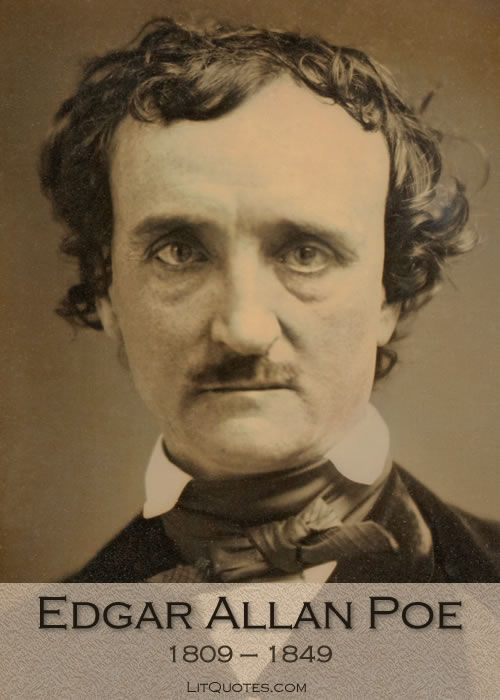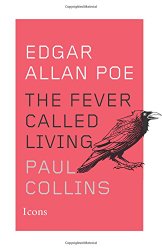Eleonora, by Edgar Allan Poe, was first published in 1842.
They who dream by day are cognizant of many things which escape those who dream only by night. ~ Eleonora by Edgar Allan Poe


Eleonora, by Edgar Allan Poe, was first published in 1842.
They who dream by day are cognizant of many things which escape those who dream only by night. ~ Eleonora by Edgar Allan Poe


You may know that Edgar Allan Poe wrote The Raven and The Fall of the House of Usher but did you know that . . .
1 – Edgar Allan Poe was born on January 19, 1809 in Boston. He died on October 7, 1849.
2 – His parents were both actors. In fact, Poe may have been named after a character in King Lear. His parents performed the play the year of Poe’s birth.
3 – Poe’s father abandoned the family in 1810. Sadly, Poe’s mother passed away in 1811. Edgar was raised by John and Frances Allan of Richmond, Virginia.
4 – In 1835 Poe married Virginia Clemm, his first cousin. She was thirteen-year-old at the time. They remained married until her death in 1847.
5 – Edgar Allan Poe is considered to be the inventor of the detective fiction genre because of his work, The Murders in the Rue Morgue.
6 – Poe died in 1849 at the age of 40. The cause of his death is a mystery. Theories about the matter include alcohol, carbon monoxide poisoning, suicide and even rabies.
 Edgar Allan Poe (January 19, 1809 – October 7, 1849) wrote The Raven and other tales of mystery and macabre. But how much do you really know about him? A newly released book, Edgar Allan Poe: The Fever Called Living
Edgar Allan Poe (January 19, 1809 – October 7, 1849) wrote The Raven and other tales of mystery and macabre. But how much do you really know about him? A newly released book, Edgar Allan Poe: The Fever Called Living should help to answer those questions.
Looming large in the popular imagination as a serious poet and lively drunk who died in penury, Edgar Allan Poe was also the most celebrated and notorious writer of his day. He died broke and alone at the age of forty, but not before he had written some of the greatest works in the English language, from the chilling “The Tell-Tale Heart” to “The Murders in the Rue Morgue”—the first modern detective story—to the iconic poem “The Raven.”
Poe’s life was one of unremitting hardship. His father abandoned the family, and his mother died when he was three. Poe was thrown out of West Point, and married his beloved thirteen-year-old cousin, who died of tuberculosis at twenty-four. He was so poor that he burned furniture to stay warm. He was a scourge to other poets, but more so to himself.
In the hands of Paul Collins, one of our liveliest historians, this mysteriously conflicted figure emerges as a genius both driven and undone by his artistic ambitions. Collins illuminates Poe’s huge successes and greatest flop (a 143-page prose poem titled Eureka), and even tracks down what may be Poe’s first published fiction, long hidden under an enigmatic byline. Clear-eyed and sympathetic, Edgar Allan Poe is a spellbinding story about the man once hailed as “the Shakespeare of America.”
Edgar Allan Poe: The Fever Called Living
You might also enjoy the LitQuotes collection of quotes by Edgar Allan Poe.